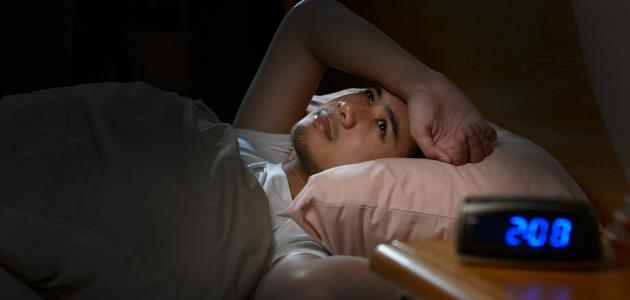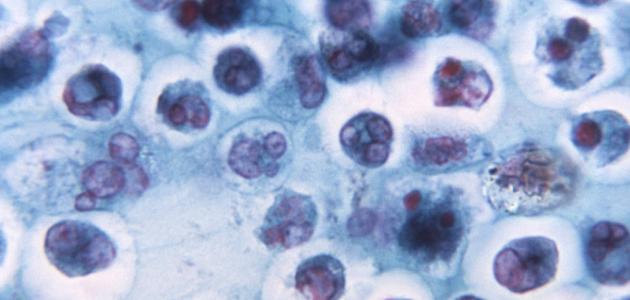dizziness
Some describe dizziness (in English: Dizziness) as feeling dizzy or dizzy in the surrounding environment, and others may describe it as a feeling of imbalance. In any case, dizziness is not a disease in itself, but rather a symptom of a health problem that the affected person suffers from. There are some people who suffer from other symptoms besides dizziness, such as nausea and vomiting, and in fact there are many cases in which the patient recovers from dizziness automatically without receiving any treatment, however there are some cases that require medical intervention, and it is worth noting that dizziness may It is a symptom that appears suddenly or gradually, and its severity ranges from simple to serious, and in cases where dizziness is serious or continues for more than a week, a doctor's review is a must.
How to get rid of dizziness
home treatment
Usually, cases of feeling dizzy do not require remedial measures, as the body is often able to adapt to the cause that led to suffering from dizziness, but if a person suffers from dizziness frequently, it is advised to follow the following home remedial measures:
- Ensure that you consume sufficient amounts of fluids, follow a healthy diet, in addition to the need to take an adequate amount of rest and sleep, and reduce and control stress.
- Refrain from drinking alcohol as it can make the condition worse.
- Reducing the intake of citrus fruits and caffeine to increase the severity of the symptoms that appear on the patient.
- Quit smoking because it causes an increase in the symptoms that the patient suffers from.
- Take care to sit in a cool place and drink water in sufficient quantities if the cause of dizziness is exposure to excessive heat or dehydration, and it can be inferred that dehydration is the underlying cause of the feeling of dizziness by monitoring the amount of urine. With thirst and fatigue when dizziness, dehydration is often the underlying cause of this problem.
- Avoid driving and using heavy machinery if the person suffers from frequent bouts of dizziness.
- Maintain balance as much as possible, to avoid falls and exposure to wounds and injuries.
- Avoid sudden movements.
- Eating ginger, for its role in relieving dizziness and nausea, if any, and ginger can be consumed by drinking it in the form of tea or taking nutritional supplements prepared from it, but it is worth noting not to take these supplements without consulting a specialist doctor, due to the possibility of their interference with the health problems that one suffers from. Including the patient, and the medications he takes.
- Take Vitamin C If the reason behind feeling dizzy is suffering from Ménière's disease, it has been shown to have an effective role in such cases, and among the most important sources of Vitamin C: oranges, sweet peppers, grapefruit, and strawberries.
- Take vitamin E, for its ability to improve the elasticity of blood vessels, and thus help control circulatory problems that may be a cause of dizziness, and sources of vitamin E: spinach, kiwi, nuts, wheat germ, and others.
- Take vitamin B6, which is found in apricots, dried peaches, tuna fish, turkey meat, and others.
- Eat enough iron if you suffer from anemia, as dizziness is one of the symptoms that appear in such cases, and known sources of iron include: red meat, poultry, legumes, and green leafy vegetables.
drug therapy
In fact, there is no specific treatment to get rid of dizziness, but there are a number of pharmacological options that can be used to control the condition that causes dizziness, and among these options are the following:
Read also:What are the causes of insomnia- Anti-anxiety drugs, and resort to them in the event that the reason behind the dizziness is suffering from panic attacks or one of the other psychological problems, and examples of drugs belonging to this group: Diazepam (in English: Diazepam), and Alprazolam (in English: Alprazolam), but it is worth noting the possibility of causing These drugs lead to addiction.
- Anticholinergic drugs such as scopolamine and anti-histamines.
- Medicines used to control migraine, also known as migraine, if this problem is the underlying cause of the feeling of dizziness.
- Diuretics, and these drug groups are resorted to in the event that Meniere's disease is the cause of dizziness.
- Gentamicin, this type of antibiotic is given in the form of an injection in the ear, in some cases, according to what the doctor deems appropriate.
Other treatments
In addition to the above, there are some treatment options that can be used to control dizziness, including the following:
- Psychotherapy: (in English: Psychotherapy), this type of treatment can be used in cases where the cause of dizziness is suffering from psychological problems and disorders, often represented by anxiety.
- Balance Therapy: This type of treatment is used in cases where the cause of dizziness is inner ear problems, such as vestibular neuritis.
- Surgical treatment: labyrinthectomy, and this surgery is performed in cases where the person suffers from hearing loss and dizziness despite the use of other forms of treatment, but this option is rarely resorted to.









